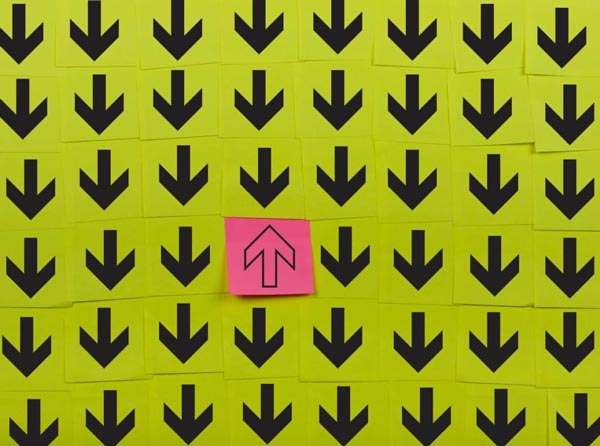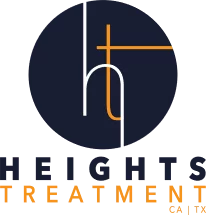Table of Contents
An addict is always in recovery. I am sure you have heard that statement before, as there is no cure for addiction. Once you hit recovery, that is where you will stay – unless you relapse. For an addict, the risk of relapsing is always right around the corner.
Let’s face it – relapse happens. In fact, according to the National Institute on Drug Abuse (NIDA), 40-60% of people will relapse at least once after entering recovery. Addictions are ugly, and they can’t wait for the very moment you let your guard down to flood you with cravings that may send you spiraling uncontrollably. Unless, of course, you are prepared and ready for combat.
You are one step ahead if you already know your triggers and how to avoid them. If not, keep reading…
What Are Triggers?
It doesn’t matter what substance you abused; there will be certain things, places, people, emotions, or even situations that remind you of your addiction. Simply put, these are your triggers. These suckers will force you to determine whether you will remain in recovery or stumble into a relapse.
Triggers can arise at any time. For instance, let’s say that since in recovery, you have discovered how pleasant the grocery store is on a Friday night. Armed with tools from treatment, you have made good decisions in replacing old activities with new ones. So, you buy groceries instead of hanging out with your old buddies and getting high on a Friday night. It is safe. However, this night, your old buddies decide to stop in the same store to grab some snacks before they start their partying. You come face to face with them. What do you do?
That is how quickly a relapse can begin taking form. You must be on guard always and never let yourself get over-confident in your recovery. You may think you won’t be tempted, but sometimes it only takes one minuscule trigger.
Let’s look at the different types of triggers you may encounter. Some may apply to you; others may not. The key is to identify those that would be triggers for you so that you can be on the lookout for them.
Environmental Triggers
Environmental triggers are generally associated with places in your environment. For example, clubs or bars, a particular park, a certain neighborhood, a hotel, an old friend’s house, etc. They are places where you may find yourself reminiscing about your past.
Another example of an environmental trigger would be allowing yourself to go to a place or event where you know you will have easy access to drugs and alcohol. Many social events, celebrations, parties, get-togethers, and even concerts can fall into this category.
Social Triggers
Social triggers are those that pop up in situations involving others. Sure, encountering old friends who are users is a definite social trigger, but it doesn’t stop there. Social triggers can be:
- Relationship troubles or the ending of a relationship.
- Getting yelled at or having your behavior or life critiqued.
- Meeting with those you may have hurt in the past.
- Disagreements with co-workers.
- Social isolation.
Emotional Triggers
Strong feelings can act as triggers. Perhaps you used to comfort or give yourself a break from emotional situations. Contrary to what you may think, these triggers are not just negative emotions but positive emotions as well. Here are a few of the most common:
- Stress. This is one of the biggest triggers for many people. Finding your place in life after treatment for an addiction can be overwhelming and stressful.
- Underlying mental health disorders.
- Anger.
- Fear.
- Frustration.
- Depression.
- Celebratory feelings.
How To Avoid Triggers
The most important thing you can do for yourself and your recovery is to know your triggers and have a plan. Arm yourself with coping skills that will help you ride out any desire to use. Triggers can come in any circumstance, at any time, or place. You always need to be ready.
- Accountability – Have someone in your support group that can act as an accountability partner. This is someone you can call when you are struggling with a trigger or even when you think you may soon be facing one. The accountability partner can talk you through the situation and help you refocus on the present and your future.
- Learn relaxation techniques – Whether it’s meditation, yoga, or just controlled breathing, learning one of these methods can help you re-center yourself when you are facing potential danger.
- Be honest – When you are an addict, much time is spent lying to hide your addiction. You are in recovery now, and it is time to be honest, especially with those supporting you. It is okay to mess up or have cravings – that is normal. When you lie about anything in recovery, that is almost equivalent to putting one foot in a relapse pool.
- Engage thought-stopping tools – Call someone in your support group, do a puzzle, or engage in conversation with someone nearby if you must.
- Be assertive – You know what your triggers are. If you find yourself in a situation or at a location that you know will be a trigger for you, then leave or change the situation or circumstance. Don’t be afraid to walk away; never be afraid to ask for help.
- Exercise – Engaging yourself in an exercise routine is sure to help with triggers. For one, you are getting healthy and will be more likely to want to remain healthy. And two, exercise releases endorphins that can relax your mind and pull it away from your triggers. All exercise is great, but having something you can do on the fly would be the most convenient for these trigger situations – i.e. running, briskly walking, bicycling, swimming.
All in all, the choice is yours. You have learned so many skills, and the real world is your chance to put them to work. Know your triggers and know how to fight them. Dig out that ninja gear – you may need it! You can only overcome this if you are prepared!
Sources:
- National Institute on Drug Abuse. Treatment and Recovery. National Institute on Drug Abuse. Published July 2020. Accessed October 14, 2022. https://nida.nih.gov/publications/drugs-brains-behavior-science-addiction/treatment-recovery
- Post C. 7 Ways To Have Fun At Parties As The Only Sober Person. SELF. Published November 9, 2015. Accessed October 14, 2022. https://www.self.com/story/ways-to-have-fun-as-the-only-sober-person
- Javitch DG. 7 Steps to Defuse Workplace Tension – Workplace Conflict – Entrepreneur.com. Entrepreneur. Published July 29, 2010. Accessed October 14, 2022. https://www.entrepreneur.com/leadership/7-steps-to-defuse-workplace-tension-workplace-conflict/207680
- Edberg H. How to Overcome Your Fear: 7 Tips from the Last 2200 Years. The Positivity Blog. Published April 15, 2021. Accessed October 14, 2022. https://www.positivityblog.com/how-to-overcome-your-fear-7-tips-from-the-last-2200-years/
- Vozza S. Why an Accountability Buddy Is Your Secret Weapon for Faster Growth. Entrepreneur. Published August 29, 2013. Accessed October 14, 2022. https://www.entrepreneur.com/growing-a-business/why-an-accountability-buddy-is-your-secret-weapon-for/228077
The Heights Treatment Editorial Guidelines
There is a vast amount of misinformation online especially as it relates to health & wellness. We have made it our mission at The Heights Treatment to provide accurate, medically sound content that has been medically reviewed by a doctorate level clinician so that you can trust the information contained within our website.





